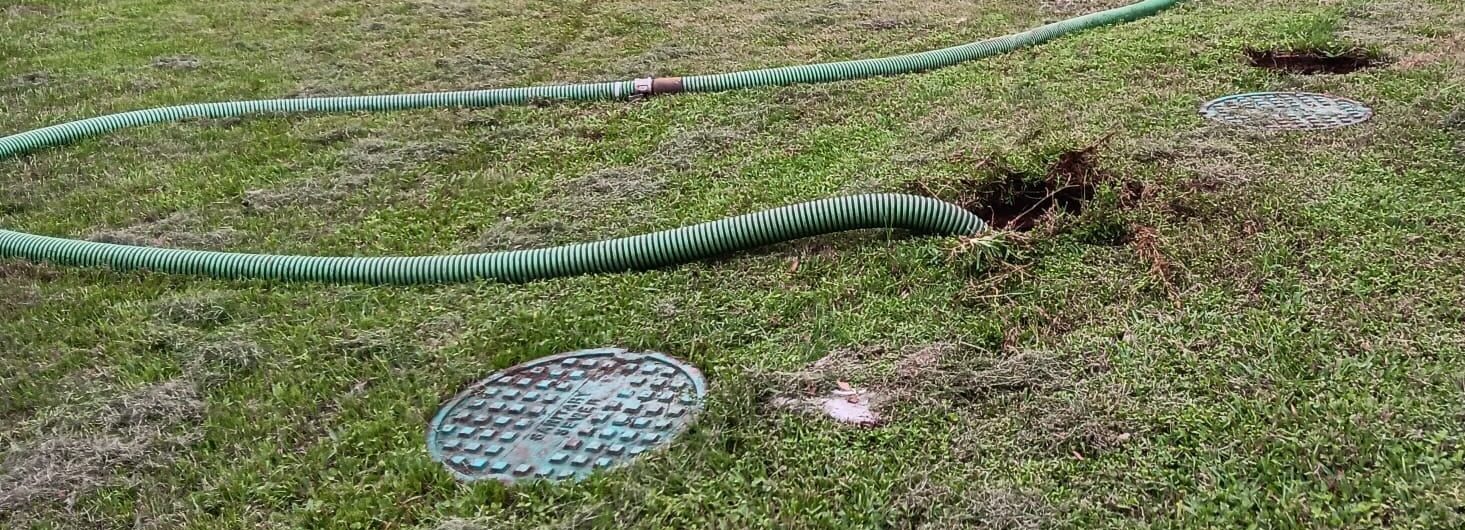Maintaining a clog-free septic system is crucial to avoid costly repairs and to keep your system running smoothly. At ACE Septic & Waste, we often see clogs caused by everyday household activities. Here’s a breakdown of what causes clogs and how to prevent them.
7 Reasons for a Clogged Septic System
Excessive Water Usage
Too much water flowing into your septic system at once can overload it, forcing solids out of the tank before they have time to settle. This leads to blockages in your drain field.
Prevention Tip: To avoid overwhelming your system, stagger laundry loads, install low-flow fixtures, and be mindful of water use.
Non-Biodegradable Items and “Flushable” Wipes
Items labeled as “flushable,” like wipes and certain hygiene products, don’t break down easily, if at all. When flushed, they accumulate in your pipes and septic tank, causing serious blockages.
Prevention Tip: Only flush human waste and toilet paper. Make sure everyone in your household knows this rule.
Cooking Grease and Oils
Pouring grease and oils down the drain might seem harmless, but they solidify and coat your pipes, leading to blockages. Over time, this can clog your entire system.
Prevention Tip: Pour grease and oils into a container, let it solidify, and throw it in the trash.
Improper Disposal of Household Chemicals
Many household cleaners and chemicals are harmful to the bacteria that break down waste in your septic tank. Without these bacteria, solids accumulate and clog your system.
Prevention Tip: Use septic-safe cleaning products, and avoid pouring chemicals down the drain.
Tree Root Intrusion
Tree roots are drawn to the moisture in septic pipes and can grow into them, blocking or even breaking pipes. This issue is especially prevalent in older systems.
Prevention Tip: Plant trees and shrubs away from your septic system and have regular inspections to identify potential root intrusions.
Lack of Routine Pumping
When septic tanks aren’t pumped regularly, sludge builds up and can eventually block your drain field, causing backups and system failure.
Prevention Tip: Schedule septic tank pumping every 2-3 years to keep your system functioning optimally.
Damaged or Collapsed Pipes
Old, damaged, or improperly installed pipes to and from your septic tank can restrict flow and lead to blockages. As your system ages, it’s essential to keep an eye out for potential issues.
Prevention Tip: Have your septic system inspected regularly and replace any damaged pipes early to avoid larger problems down the line.
DIY Solutions for a Clogged Septic System
When dealing with a septic system clog, there are a few DIY methods you can try before calling in the professionals. Here are some safe and effective solutions:
Inspect the Problem Area:
Start by determining whether the clog is isolated to one fixture or affecting multiple areas in your home. You should also identify whether the clog is within the septic system or the household plumbing.
Hot Water and Mild Detergent:
Pour a pot of hot water mixed with a few drops of mild detergent down the clogged drain. This can help break down minor grease or soap clogs. Let it sit for 15-20 minutes, then follow with more hot water.
Septic-Safe Enzyme Cleaner:
Consider using a septic-safe, enzyme-based drain cleaner to dissolve organic clogs. Avoid chemical-based cleaners, as these can harm the beneficial bacteria in your septic system.
Reduce Water Usage:
Temporarily reduce water usage to give your septic system a break from flooding or especially high water usage. This can help prevent further clogs and allow minor blockages to clear up on their own.
If the clog persists despite these efforts, it’s best to call ACE Septic & Waste for a septic system inspection or septic pumping. DIY solutions are helpful for minor issues, but larger blockages will require professional inspection and repair to prevent further damage.
Stay Septic Smart with ACE
Clogs are one of the most common—and preventable—issues with septic systems. With proper maintenance and mindful usage, you can keep your septic system running smoothly for years to come.
Contact ACE Septic & Waste for routine maintenance, emergency services, or advice. Our professional team is here to help ensure your system is in top condition.







